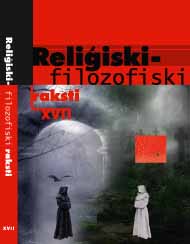Competitive Pasts. Ethno-paganism as a Placebo-effect for Identity Reconstruction Processes in Hungary and Romania
Competitive Pasts. Ethno-paganism as a Placebo-effect for Identity Reconstruction Processes in Hungary and Romania
Author(s): László Attila Hubbes, István PovedákSubject(s): Social Sciences
Published by: Latvijas Universitātes Filozofijas un socioloģijas institūts
Keywords: contemporary Paganism; Ethno-paganism; Post-socialist identity reconstruction
Summary/Abstract: One of the leading researchers of contemporary Paganism studies, Michael York discussed “Paganism as a world religion”. From this short phrase one may easily draw the false consequence that contemporary Paganism is a unified religious phenomenon. Although there are common elements in the belief system, spiritual basis, and in world-view, “Western” and “Eastern- European-type” contemporary Paganisms have to be strictly separated. This distinction can be grasped in the historical antecedents, in the historical construction and evolution, in symbolism, and also on the doctrinal and semantic levels of the phenomenon. By using Hungarian and Romanian contemporary Pagan examples this paper has multiple aims. First, it tries to prove that the roots of Eastern European-type contemporary Paganism (labelled as Ethno-paganism by the authors) connects to identity reconstruction and identity preserving processes instead of the spiritual revolution of the 1960s. With the Hungarian and Romanian examples the authors also aim to prove that the contemporary Pagan awakening in the analysed region is a syncretizing religious process that has formed as an outcome of certain political and social impacts, which evoked the same cultural mechanism, and resulted in the same cultural patterns.
Journal: Religiski-filozofiski raksti
- Issue Year: XVII/2014
- Issue No: 1
- Page Range: 133-152
- Page Count: 20
- Language: English

